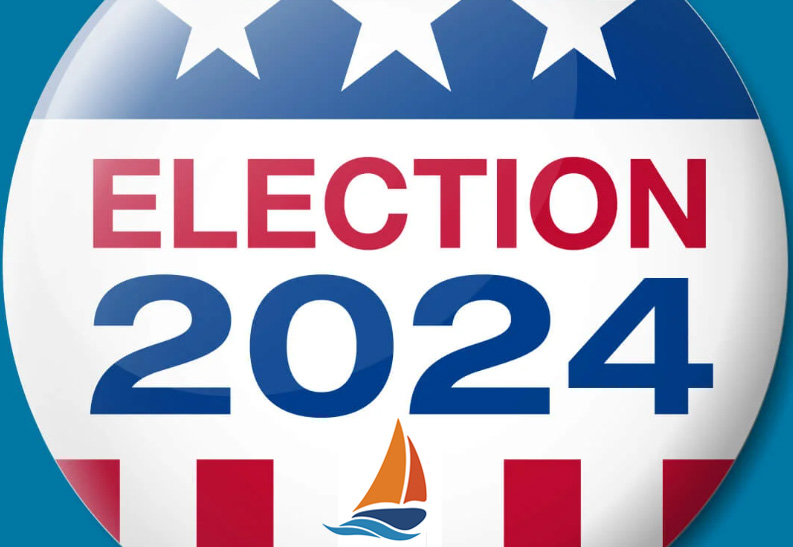
How an Election Year Can Affect Merger and Acquisition Deals
Election years in the U.S. tend to inject a level of uncertainty into financial markets, and the mergers and acquisitions (M&A) landscape is no exception. Business owners, investors, and corporate leaders carefully monitor economic policies and potential regulatory changes that could impact deal-making. As companies consider growth strategies or exit plans, they often weigh how an upcoming election might affect market conditions, taxes, and industry regulations.
Here, we examine key factors that influence M&A during an election year and how both buyers and sellers can navigate these dynamics.
1. Economic Uncertainty
One of the most significant challenges during election years is the uncertainty around future economic policy. Both buyers and sellers may hesitate to move forward with deals when they are unsure how new leadership will impact taxes, interest rates, and trade policies.
For example, changes in corporate tax rates can affect the valuation of a business and the post-tax cash flows that buyers consider when determining a company’s worth. In the 2020 election, anticipation of tax changes led to an increase in deal activity as sellers sought to close transactions before potential increases in capital gains taxes were implemented.
Strategic Response: For buyers, this uncertainty can present opportunities to negotiate favorable deal terms, especially if sellers are motivated to close before possible changes in tax laws. Sellers, on the other hand, may consider accelerating deals to avoid being affected by future tax hikes.
2. Regulatory and Antitrust Concerns
Election years often bring discussions around regulatory reform, particularly in industries such as healthcare, energy, and technology. Changes in antitrust policies could impact the approval process for large mergers or even alter the competitive landscape in certain sectors.
For instance, stricter antitrust enforcement could slow down major M&A transactions, especially in sectors where market consolidation is a concern. As political platforms evolve during campaigns, companies might delay or adjust their acquisition strategies based on how potential reforms could affect their industry.
Strategic Response: Businesses should closely monitor the regulatory positions of candidates, especially in sectors prone to scrutiny. Buyers in highly regulated industries might want to secure deals before new regulations complicate the process, while sellers may aim to position their companies as more attractive by proactively addressing potential regulatory concerns.
3. Market Volatility
Election years often see increased market volatility, as stock markets react to polling data, debates, and policy announcements. Market swings can affect the valuation of publicly traded companies and impact stock-based transactions. For M&A deals involving stock as a form of payment, volatile markets can lead to uncertainties in deal pricing.
In 2016, for example, the unexpected outcome of the U.S. presidential election led to fluctuations in the stock market. Such volatility can either encourage or deter deal-making, depending on the risk appetite of buyers and sellers.
Strategic Response: Companies looking to merge or acquire should factor in potential stock market volatility and consider structuring deals to mitigate risk. Earn-outs, contingent payments, and other flexible terms can help manage fluctuations in valuations and protect both parties during uncertain times.
4. Private Equity and Foreign Investment Activity
Election-year uncertainty can lead to a shift in capital flow, especially from private equity (PE) firms and foreign investors. PE firms, which often seek out undervalued businesses or distressed assets, might see election years as an opportunity to strike deals at more favorable prices.
Foreign investors, on the other hand, may pause M&A activity as they wait to see how trade policies, tariffs, and foreign investment regulations could change under new leadership. The Committee on Foreign Investment in the United States (CFIUS) may take a more stringent or relaxed approach to foreign investments depending on the outcome of the election.
Strategic Response: Sellers seeking foreign buyers should be prepared for potential delays or increased scrutiny during an election year. Meanwhile, private equity firms might find attractive opportunities to acquire businesses at a discount due to the heightened caution in the market.
5. Tax Policy and Corporate Strategy
Tax policy is often one of the most closely watched factors during an election year. Changes to capital gains taxes, corporate tax rates, or tax incentives for certain industries can significantly impact M&A activity. If buyers anticipate higher taxes in the future, they may delay acquisitions or adjust their pricing strategies accordingly.
During the 2012 and 2020 elections, many business owners rushed to sell before potential tax increases on capital gains, leading to a surge in year-end deal activity. Companies also adjusted their corporate strategies to account for possible shifts in tax burdens.
Strategic Response: Buyers and sellers should stay informed on potential changes to tax policy and work with tax advisors to understand how different scenarios could affect their deal structures. Accelerating or delaying deals based on the anticipated tax landscape can help optimize outcomes.
Conclusion: Navigating M&A During an Election Year
While election years bring uncertainty to the M&A market, they also present opportunities for strategic buyers and sellers. Understanding the key factors—economic uncertainty, regulatory changes, market volatility, private equity, foreign investment activity, and tax policy—can help businesses make informed decisions during these periods. Buyers may find opportunities to negotiate better terms, while sellers can position their companies for a timely exit before policy shifts.
Engaging an experienced mergers and acquisitions advisor can provide valuable insights and guidance as companies navigate these complexities. At Topsail Capital Advisors, we specialize in helping businesses achieve optimal outcomes even in uncertain market conditions. Our team works closely with clients to assess the impact of political and economic trends on their specific industries and goals, ensuring a smooth and successful transaction.
About Topsail Capital Advisors
Topsail Capital Advisors is a trusted M&A advisory firm specializing in mergers and acquisitions for small to mid-sized businesses across the Southeast United States. We provide expert guidance throughout the transaction process, helping business owners and investors achieve their strategic goals. Whether you’re considering selling your business, acquiring another company, or exploring financing options, Topsail Capital Advisors is here to support you. For more information, visit topsailcapitaladvisors.com.
Sources
- Harvard Business Review, “How Elections Affect the Economy and Business Decisions,” 2020.
- PwC, “Election 2020 and What It Means for M&A Activity,” 2020.
- The Wall Street Journal, “Mergers & Acquisitions Surge Before Potential Tax Changes,” 2020.
- Forbes, “Election-Year Volatility and What It Means for M&A,” 2020.
- Bloomberg, “The Effect of Elections on Foreign Investment and Private Equity Activity,” 2020.
